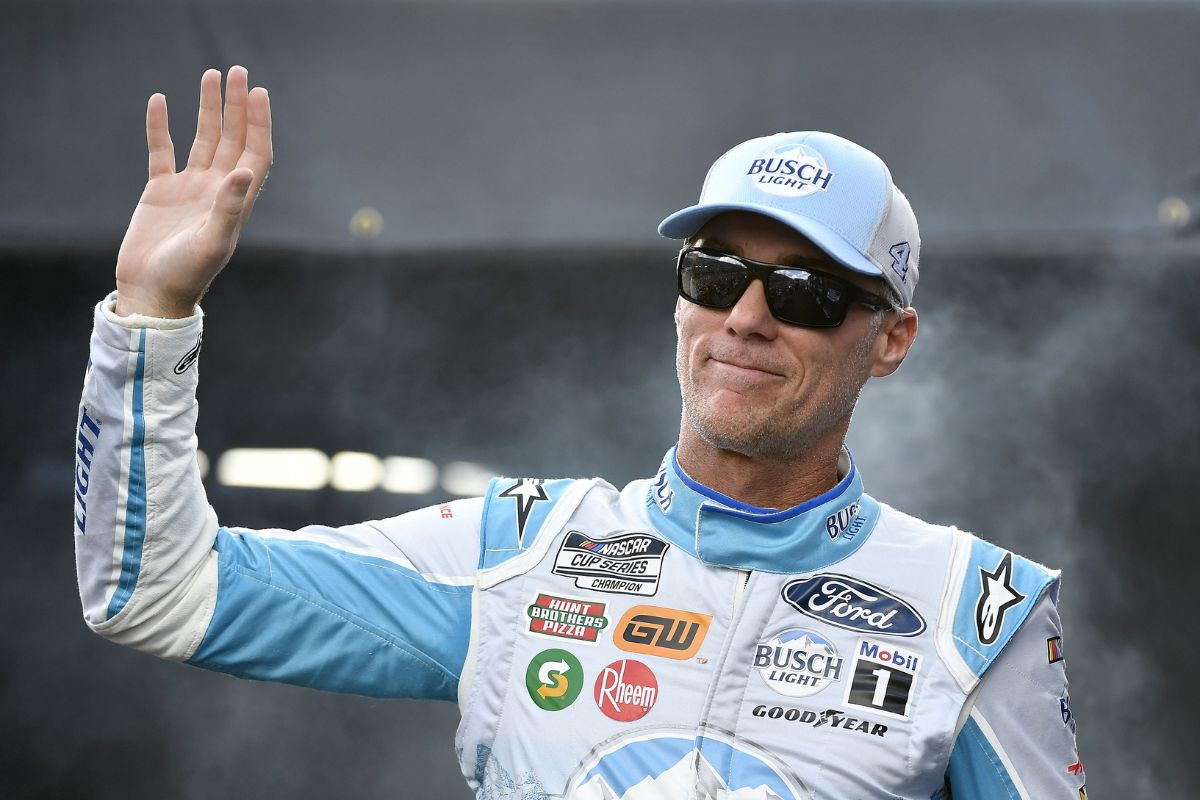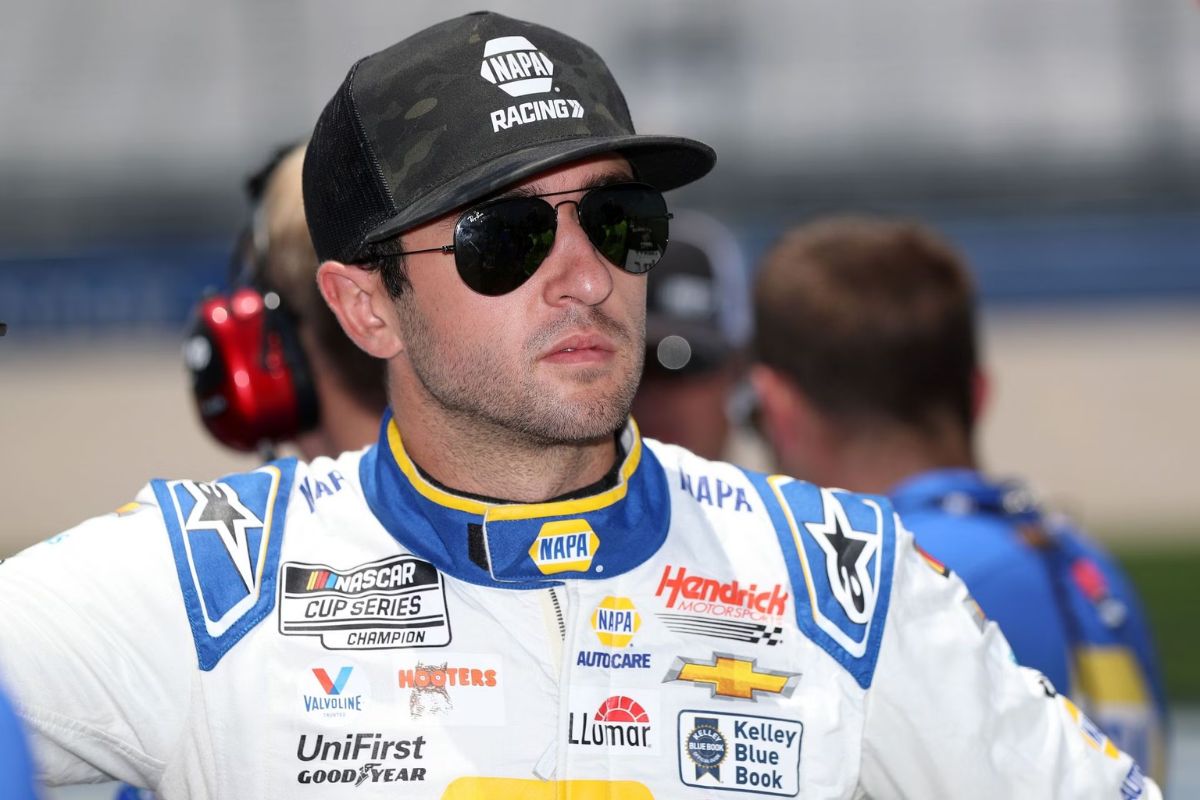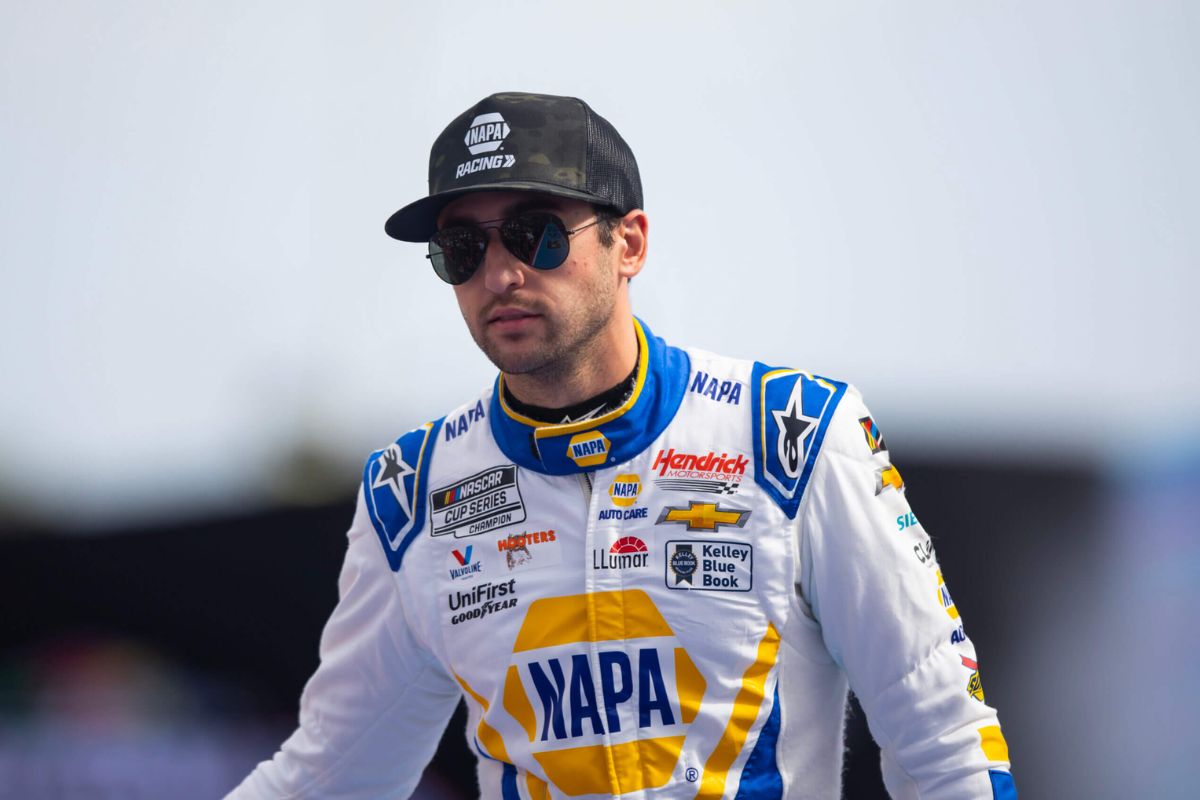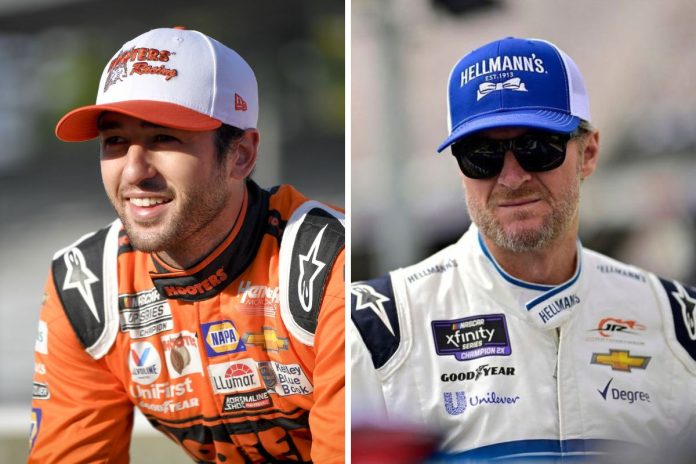Chase Elliott and Dale Jr’s NASCAR Burden: Kevin Harvick’s recent comments shed light on the profound challenges faced by NASCAR drivers Chase Elliott and Dale Earnhardt Jr., who not only race against competitors but also against the towering legacies of their fathers, Bill Elliott and Dale Earnhardt Sr. Harvick’s empathetic stance highlights the psychological and emotional dimensions of their careers, emphasizing that the stress to perform is compounded by expectations to uphold family heritage. This insight invites us to think how such legacies shape the careers and personal lives of athletes in high-stakes sports. What remains unexplored is how Elliott and Earnhardt Jr. personally reconcile these internal and external battles in their pursuit of individual success.
Key Takeaways
- Kevin Harvick highlights the intense scrutiny and expectations faced by Chase Elliott and Dale Earnhardt Jr. due to their familial legacies.
- Harvick empathizes with the emotional strain of constantly being compared to legendary predecessors like Bill Elliott and Dale Earnhardt Sr.
- The media and fanbase’s expectations create additional pressure for Elliott and Earnhardt Jr., impacting their mental and professional performance.
- Harvick advocates for a more empathetic understanding from fans and commentators towards drivers carrying legendary legacies.
- Chase Elliott implements strategies like focusing on personal excellence and filtering out external noise to manage the pressures of his racing career.
The Pressure of Living Up to Legendary Legacies
While many athletes face the demands of competition, few experience the immense burden of living up to legendary legacies like NASCAR drivers Chase Elliott and Dale Earnhardt Jr. The shadows cast by their predecessors, Bill Elliott and Dale Earnhardt Sr., are not just vast but are deeply stamped into the fabric of motorsport history. Chase, son of ‘Awesome Bill from Dawsonville,’ winner of the 1988 Winston Cup Series, and Dale Jr., offspring of ‘The Intimidator,’ a seven-time NASCAR Cup Series champion, both find themselves constantly measured against these towering benchmarks.
The psychological and emotional challenges accompanying such legacies can shape a driver’s career. They navigate not only the physical demands of high-speed racing but also the immense expectations to uphold family honor and extend the familial dynasty. This dual challenge to perform and preserve can be important for character and skill development.
Moreover, in a culture as rich and fanatically followed as NASCAR, where every race is a chapter in a larger saga, each action on the track is criticized and every victory or defeat is magnified. The narrative isn’t just about winning races; it’s about living up to a surname that resonates with historical greatness.

Kevin Harvick’s Sympathy for Chase Elliott and Dale Earnhardt Jr
Kevin Harvick’s empathy for Chase Elliott and Dale Earnhardt Jr. reflects a deep understanding of the unique challenges faced by drivers with legendary familial legacies in NASCAR. Harvick, a seasoned driver himself, recognizes the intense scrutiny and heightened expectations that come with such heritage. His perspective is especially emotional considering his own career, which, while illustrious, does not carry the same generational weight. This positions him as a credible observer of the psychological and emotional landscape that Elliott and Earnhardt have had to navigate.
When Elliott ended his 42-race winless streak at Texas Motor Speedway, the victory was met with a mix of overwhelming support and relief, highlighting the cyclical nature of fan and media perceptions—quick to criticize during downturns and lively in success. Harvick’s acknowledgment of this pattern brings attention to a broader issue within the sport: the relentless expectation to not only succeed but also continue a family’s storied legacy.
Unlike other drivers who carve out reputations based on personal achievements, Elliott and Earnhardt continually face comparisons to their legendary predecessors. Harvick’s sympathy stems from witnessing the often unspoken emotional toll this comparison elicits. His insights provide a deeper understanding of the dual burden these drivers carry: the normal challenges of competitive racing compounded by the constant evaluation against familial benchmarks.
The Weight of Expectations
The burden of expectations weighs heavily on drivers like Chase Elliott, who not only aim to excel in their races but also must contend with the towering legacies of their predecessors. In the high-octane world of NASCAR, the shadow of a famous lineage can amplify the pressure to succeed, a scenario vividly exemplified by Elliott. Having experienced a winless season, the scrutiny intensified, not merely on his performance but also in comparison to his father, Bill Elliott’s, illustrious career. This comparison of past and present achievements sets a challenging benchmark for Elliott, where every race is more than just about crossing the finish line first; it’s about honoring a legacy.

Amidst this pressure, Kevin Harvick’s acknowledgment of Elliott’s struggles highlights a broader narrative experienced by legacy athletes in motorsports. Harvick’s comments bring to light the often unspoken psychological and emotional load these drivers carry, not just for personal victory but also to uphold familial honor in a publicly competitive arena.
- Historical Legacy: Drivers like Elliott are constantly measured against the achievements of their predecessors, making every race a litmus test of their worthiness as successors.
- Public Scrutiny: The media and fanbase’s expectations can create an overwhelming atmosphere that intensifies the mental aspect of racing.
- Personal Achievement vs. Familial Expectation: Balancing personal goals with the inherited ambition of living up to a family name adds a unique layer of complexity to their careers.
Chase Elliott’s Response to Pressure
Chase Elliott, amid fluctuating public support and intense familial comparisons, has adopted a focused approach to managing the immense stresses of his racing career. The sudden downturn in his performance during 2023 led to a swift and harsh reaction from the NASCAR community, which had previously lauded him with six consecutive Most Popular Driver awards. This shift in public opinion, as fickle as it seems, highlights the unique pressures that accompany Elliott’s position within the sport, particularly when paralleled with the legendary status of his father.
“I get it, how things work, and I recognize that, you know for me, I didn’t want to start racing to, you know, it wasn’t a popularity contest for me. I wanted to start racing and race because I wanted to be the best, you know, from a competitive standpoint.” -(chase)
In response to these challenges, Elliott has strategically concentrated on silencing external criticisms and realigning his focus towards intrinsic goals, rather than external validations. This method of coping is not just about resilience but also about filtering out unconstructive noise that could potentially derail his mental and professional poise. Understanding the fleeting nature of fandom and media perspectives has been significant in his approach.
Moreover, the skill with which Elliott handles these pressures goes beyond mere avoidance; it involves a sophisticated balancing act of acknowledging the weight of expectations while steadfastly pursuing personal excellence and continuous improvement in his craft. This has involved a thorough exploration into both mental fortitude and tactical skills on the track, suggesting a maturation in his approach to both his career and his public persona.
Chase Elliott’s Career Goals
Amid the challenges and external demands previously discussed, Elliott’s primary career objective remains focused on achieving and maintaining top performance levels in NASCAR competitions. As the progeny of NASCAR’s most acclaimed Most Popular Driver (MPD) award winner, Chase Elliott has carved out a distinct path in the racing world. His goals are not swayed by the limelight but are anchored firmly in the domain of competitive success. Denny Hamlin’s recent remarks highlight the significance of winning, particularly early in the playoff races, suggesting that this could be a crucial strategy for Elliott’s ongoing campaign.
“I’ve always tried to stick with that mentality and stick with just knowing that being me is the best way for me to have my happiness and just do my part and continue to let the competitive aspect of racing drive me because that’s what has always driven me ever since I was a little kid. It’s always been competition for me. It’s always been the urge and the will to want to mix it up with people that I respect and put myself in that category,” -(Elliott)
- Consistent Race Victories: Aiming for continuous success on the track, not merely occasional wins, to establish dominance and secure his legacy within the sport.
- Championship Titles: Focusing on accumulating points and strategic wins necessary to contend for and ultimately win multiple NASCAR Cup Series championships.
- Resilience Under Stress: Striving to maintain composure and performance during high-pressure situations, a skill that is vital for enduring success in NASCAR.
Elliott’s career trajectory is shaped by a blend of innate talent and a rigorous commitment to excellence. His approach is methodical and calculated, much like his performances, which are often characterized by tactical skill and relentless pursuit of victory. Understanding that the stakes are high and the competition is fierce, Elliott remains steadfast in his pursuit of becoming a NASCAR legend, proving that true mastery in sports transcends mere popularity and is defined by performance and perseverance.

News in Brief: Chase Elliott and Dale Jr’s NASCAR Burden
The legacies of iconic ancestors in NASCAR impose a significant burden on drivers like Chase Elliott and Dale Earnhardt Jr., as highlighted by Kevin Harvick. This challenge encompasses not only the immense expectations from fans and the racing community but also the personal quest to honor familial heritage.
Understanding these demands is vital for appreciating the psychological and emotional resilience required for these athletes to forge their paths while respecting their profound familial connections to the sport.
ALSO READ: Chase Elliott Reveals His Biggest Hurdle to Kevin Harvick


